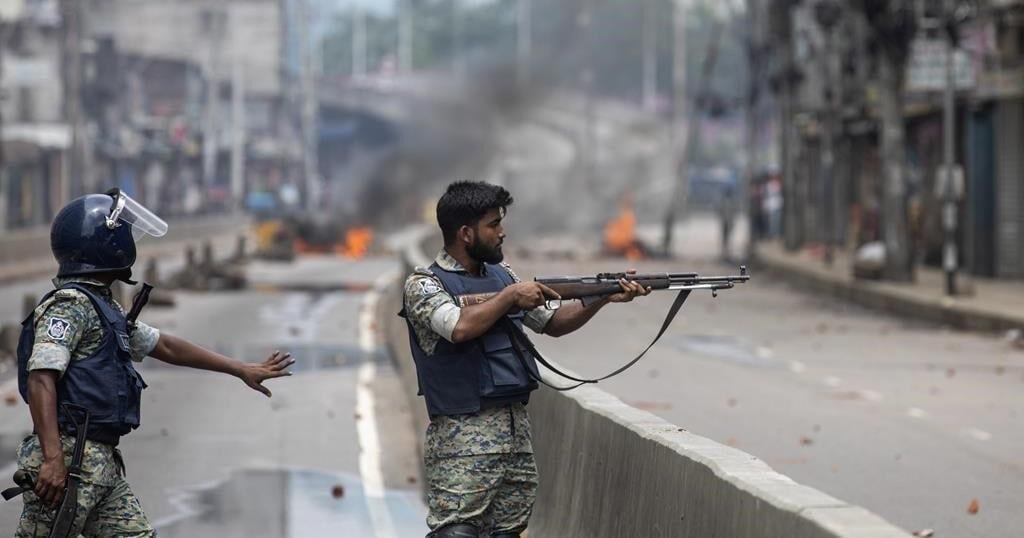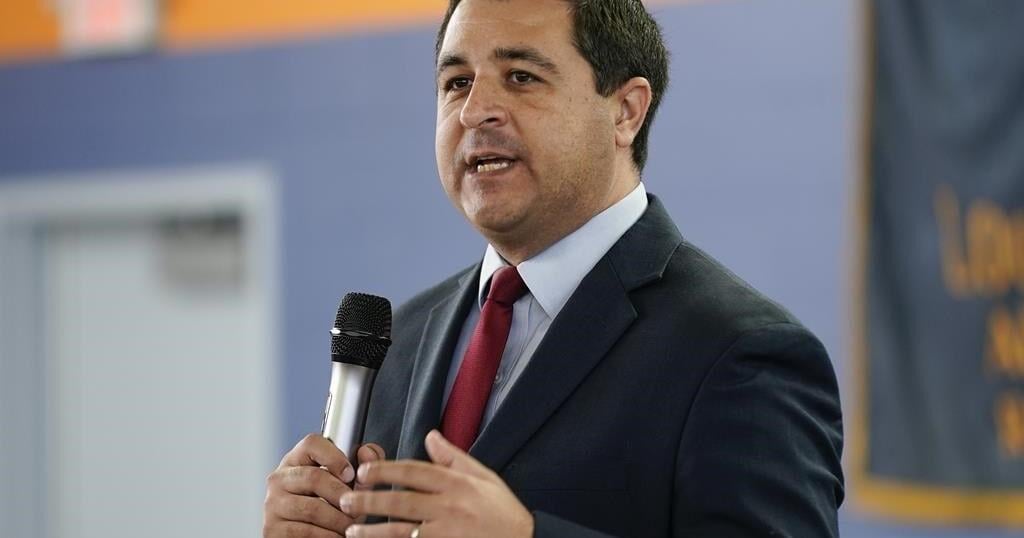DHAKA, Bangaladesh (AP) — Sheikh Hasina, the longest-serving prime minister in Bangladesh’s history, resigned and fled the country on Monday, bringing a tumultuous end to her 15-year-long rule as an extraordinary wave of protest succeeded in toppling her government.
Her ouster came after weeks of relentless protests and clashes with security forces that have killed nearly 300 people since mid-July, according to local media reports. What began as peaceful demonstrations by students frustrated with a quota system for government jobs unexpectedly grew into a major uprising against Hasina and her ruling Awami League party.
The recent upheaval was the largest and last crisis for the 76-year-old leader, the world’s longest-serving female head of government, who won a fourth consecutive term in January in an election boycotted by the main opposition amid concerns that the polls were not free or fair.
How it all began
Hasina first became prime minister in 1996, and then returned in 2008 to win the office she held until Monday.
Analysts who have tracked her rise say her political life was driven by tragedy. On Aug. 15, 1975, her father and the first leader of independent Bangladesh, Sheikh Mujib Rahman was assassinated in a military coup.
That fateful night, while 28-year-old Hasina was in Germany with her younger sister, a group of army officers burst into the family’s Dhaka home and killed her parents, three other siblings and the household staff — 18 people in all.
Some say the brutal act pushed her to consolidate unprecedented power. It was also what motivated her throughout her political career, analysts say.
“Hasina has one very powerful quality as a politician — and that is to weaponize trauma,” said Avinash Paliwal, a former university lecturer who specialized in South Asian strategic affairs said in January ahead of the general election.
To Hasina, her father was the founder of independent Bangladesh after its forces, aided by India, defeated Pakistan in 1971.
After the assassination, Hasina lived for years in exile in India, then made her way back to Bangladesh and took over the Awami League. But the country’s military rulers had her in and out of house detention all through the 1980s until, after general elections in 1996, she became prime minister for the first time.
Two women, two parties
What followed was a decadeslong power struggle between Hasina and former Prime Minister Khaleda Zia, the chief of the main opposition Bangladesh Nationalist Party, who’s now ailing and under house arrest.
The two women ran the country alternatively for years in a bitter rivalry that polarized Bangladesh politics. Hasina has often accused the BNP of courting hard-line extremists that her party, which calls itself moderate and secular, had worked to stamp out, while Zia’s BNP claims the Awami League is using oppressive tactics to stay in power.
The two traded blame as the recent protests turned violent. The BNP, which backed the student protesters, repeated calls for Hasina to step down while she accused them of stoking the violence.
She said the protests had been overtaken by the BNP and another opposition party that her government banned recently.
Years of turmoil
After Hasina lost the general election in 2001, she became the leader of the opposition. Political violence, unrest and military interventions marked the years until she was reelected.
Back in power, she fixed her sights on the economy and built infrastructure previously unseen in Bangladesh. A strong electricity grid that reaches far-flung villages; big-ticket projects such as highways, rail lines and ports. The country’s garment industry became one of the world’s most competitive.
The development gains sparked other advances: girls were educated on par with boys, and an increasing swell of women joined the workforce. Those close to her described Hasina as hands-on and passionate about uplifting women and poor people.
On the international stage, Hasina cultivated ties with powerful countries including both India and China. But the United States and other Western nations expressed concerns over human rights violations and press freedoms, straining relations. In January, after she won a fourth consecutive term, the U.S. and the United Kingdom said the polls were not credible, free and fair. Previous elections in 2018 and 2014 were also marred by allegations of vote rigging and a boycott from opposition parties.
Her critics for years accused her government of using harsh tools to muzzle dissent, shrink press freedoms and curtail civil society. Rights groups have also cited forced disappearances of critics, which her government denied.
Opposition rises
Her government employed the same heavy-handed approach when these protests began, which inflamed tensions even more, analysts said.
The student-led movement also came as Bangladesh underwent an economic churn given the recent global slowdown. Ahead of the January polls, there was labor unrest and dissatisfaction with the government.
But the latest furore highlighted the extent of economic distress in the country, where exports have fallen and foreign exchange reserves are running low. Experts say there’s a lack of quality jobs for young graduates, who increasingly seek the more stable and lucrative government jobs.
“There have been plenty of protests during Awami League’s regime over the last 15 years, but nothing as large, long, and violent as this one,” said Michael Kugelman, director of the South Asia Institute at the Wilson Center. He added that the especially ferocious government response of excessive force and deep pent up anger at the state as well as growing economic stress led to the escalation.
What’s next?
After 15 years of Hasina’s administration, it’s not clear what comes next.
Shortly after she was seen on TV boarding a military helicopter with her sister, the country’s military chief, Gen. Waker-uz-Zaman, said he would seek the president’s guidance on forming an interim government.
He promised that the military would launch an investigation into the deadly crackdown on student-led protests that fueled outrage against the government.
“Keep faith in the military, we will investigate all the killings and punish the responsible,” he said. “I have ordered that no army and police will indulge in any kind of firing.”
“Now, the students’ duty is to stay calm and help us,” he added.
Thousands of protesters celebrated in the capital, waving Bangladeshi flags as the news broke, while others looted her official residence, carrying out furniture and even fish from the kitchens.
It is an “end of a regime that delivered a lot of development but was increasingly authoritarian, as we saw with the mass killings these past weeks,” said Naomi Hossain, a research professor specializing in Bangladesh at the London-based SOAS University.
The country has seen interim governments in the past, Hossain said, adding that for now the hope is that the army will ensure peace.
But there are fears of reprisal violence. “It could get ugly if the army isn’t able to calm people down and defuse the issue. It could be a while before we are out of the woods,” she added.
___
Pathi reported from New Delhi.
























